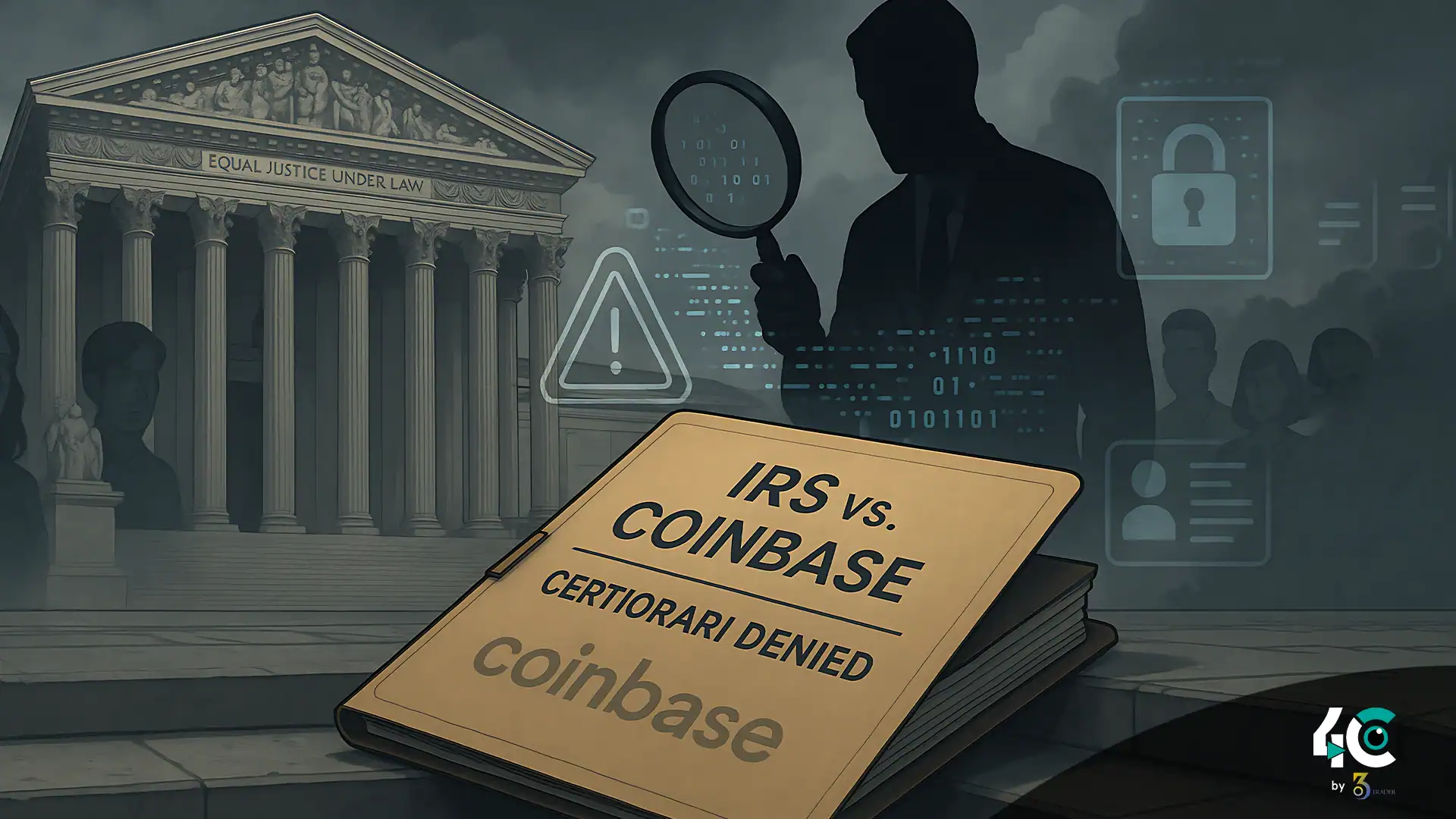Supreme Court’s Coinbase IRS Privacy Case Disinterest Sparks Concern Among Crypto Users
The Supreme Court of the United States has rejected a case that could have changed the digital privacy rights of crypto users. On Monday, the petition to review Harper v. IRS was denied. The case involves a Coinbase user challenging the IRS’s access to his personal crypto information.
In 2020, petitioner James Harper filed a lawsuit against the Internal Revenue Service, alleging it violated his Fourth Amendment rights by obtaining his transaction records from Coinbase without a warrant or individualized suspicion. This followed a “John Doe summons” issued by the IRS to gather user data in a broader probe into crypto-related tax underreporting.
Privacy Questions Remain Unanswered as Lower Court Rulings Continue
A New Hampshire district court dismissed Harper’s case in 2021, with the First Circuit Court of Appeals upholding the decision. The Supreme Court’s refusal to hear the appeal leaves those decisions intact. This means that data shared with third-party platforms—including banks, internet service providers, and crypto exchanges—carries no strong expectation of privacy under current law.
Coinbase, Privacy Advocates Backed the Challenge
Coinbase filed an amicus brief in support of Harper, warning that the lower court’s ruling could allow the government to monitor crypto activity—past and future—without the user’s knowledge or consent.
Paul Grewal, Coinbase’s Chief Legal Officer, expressed concern:
“We agree with tax compliance, but this is way more than cryptocurrencies. It affects everyone who uses online services, from banks to ISPs. Americans deserve the same privacy for their email as they do for their mail.”
Notably, X (formerly Twitter)—owned by Elon Musk—also filed a brief criticizing the IRS’s data collection as lacking legal safeguards.
Surge in IRS Crypto Warning Letters
According to CoinLedger, a crypto tax software provider, inquiries about IRS letters increased by 758%. Many recipients were not being investigated but had been flagged through John Doe summonses issued to platforms like Coinbase and Poloniex.
Although the notifications may not suggest wrongdoing, they raise fears about mass surveillance—especially when combined with enhanced IRS audit efforts and broader data collection.
The Digital Era Has Searing Consequences on Financial Privacy
The Harper case revives debate around the Third-Party Doctrine, a legal principle from 1976 stating that individuals surrender privacy over data shared with third parties. Critics argue that the doctrine is outdated in the digital age, where intermediaries handle everything from payments to private messages.
Although Harper’s court battle has ended, fundamental questions remain:
- Should digital financial data receive constitutional protection?
- Where is the line between tax enforcement and government overreach?
What This Means for the Future of Crypto Privacy in the U.S.
With the number of crypto users growing and the IRS increasing enforcement, the Harper case could be a precursor to future legal battles. These may seek to reshape how privacy is defined in the era of digital assets.
As public awareness grows and surveillance concerns deepen, the case may inspire renewed calls for updated privacy laws tailored to modern technologies.



























